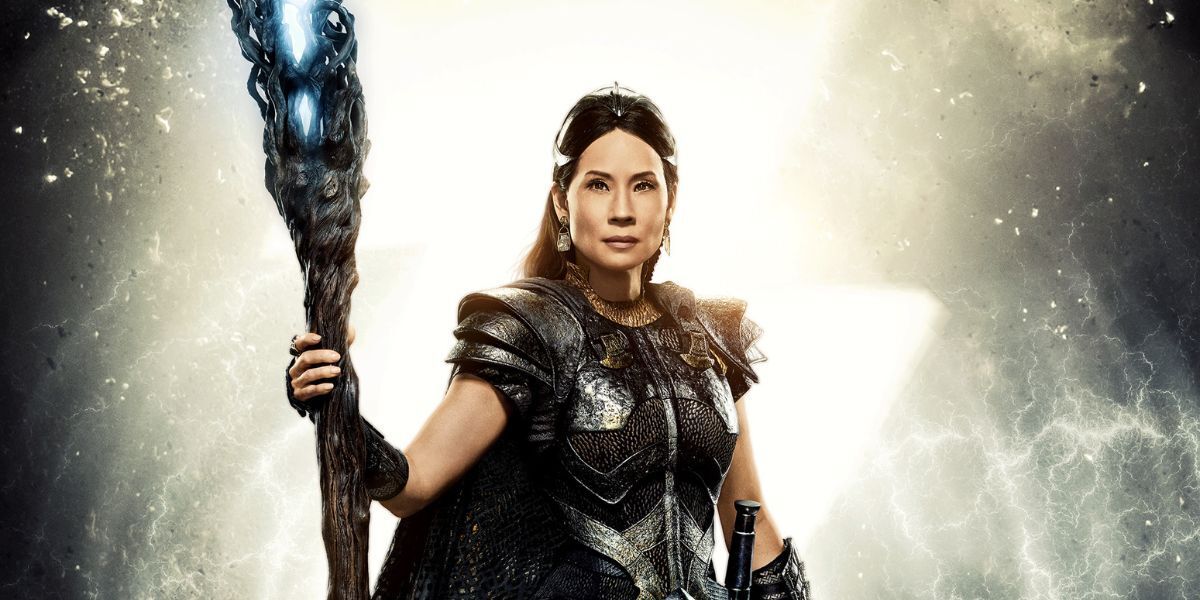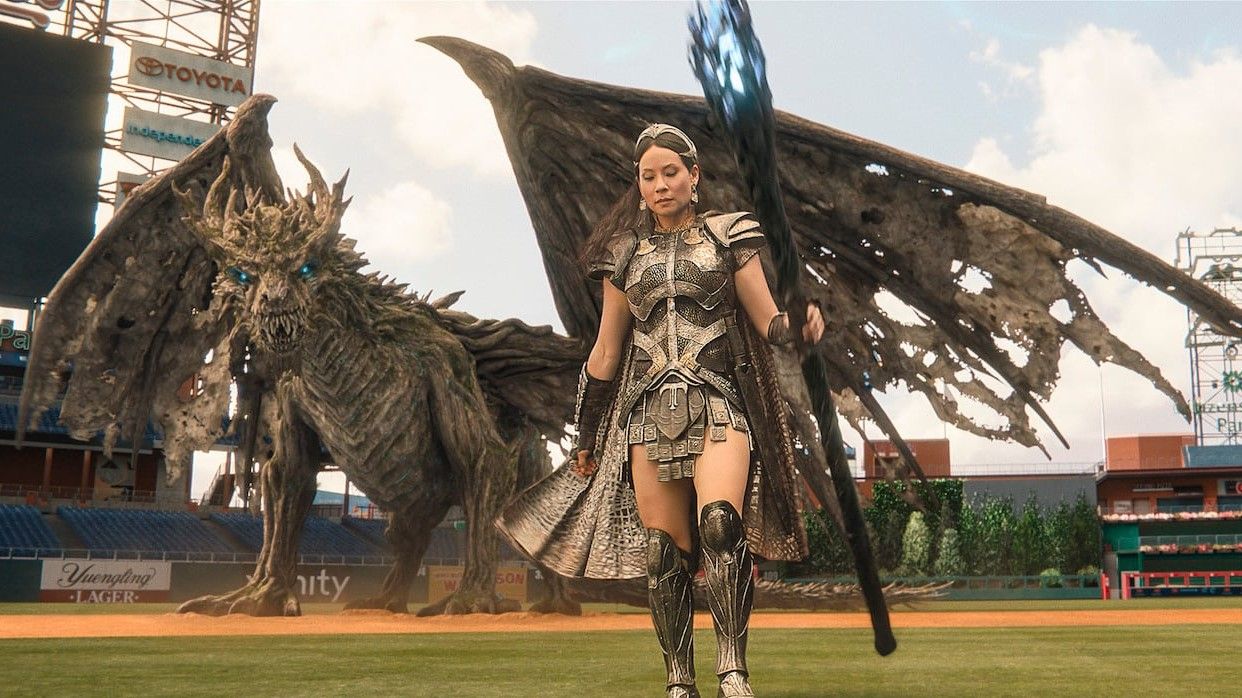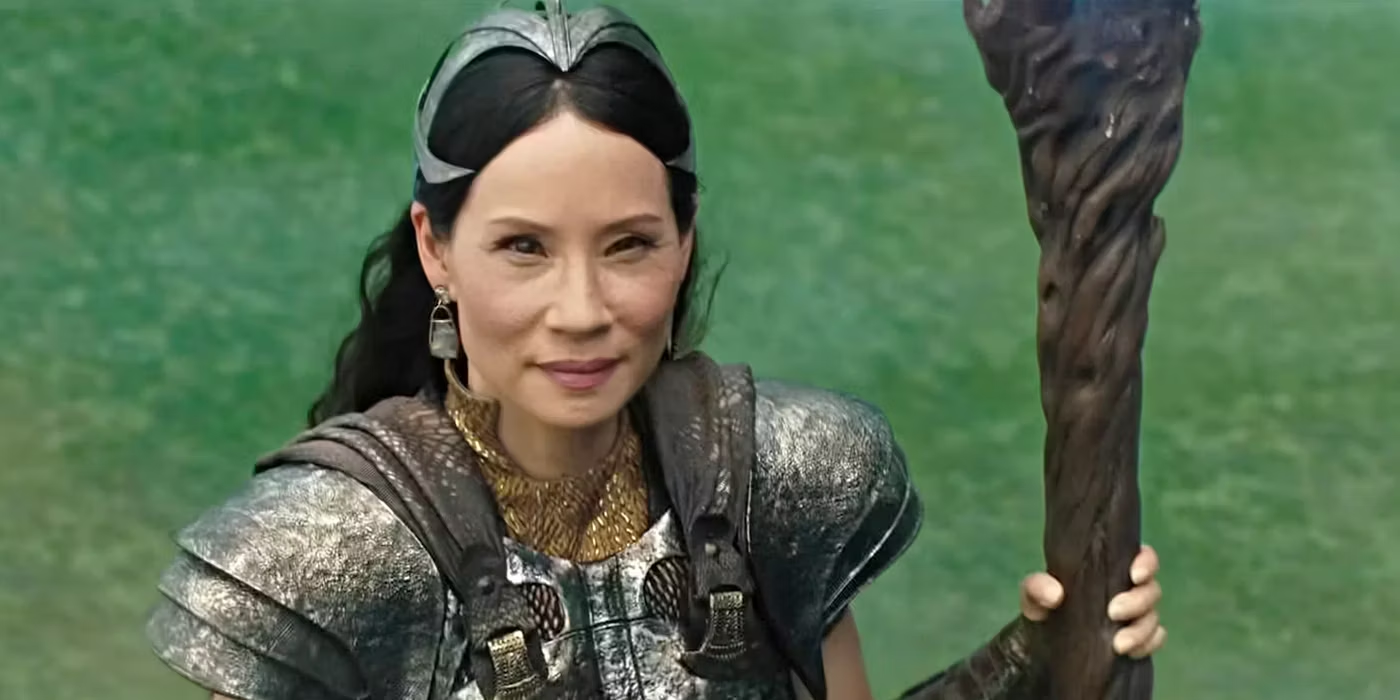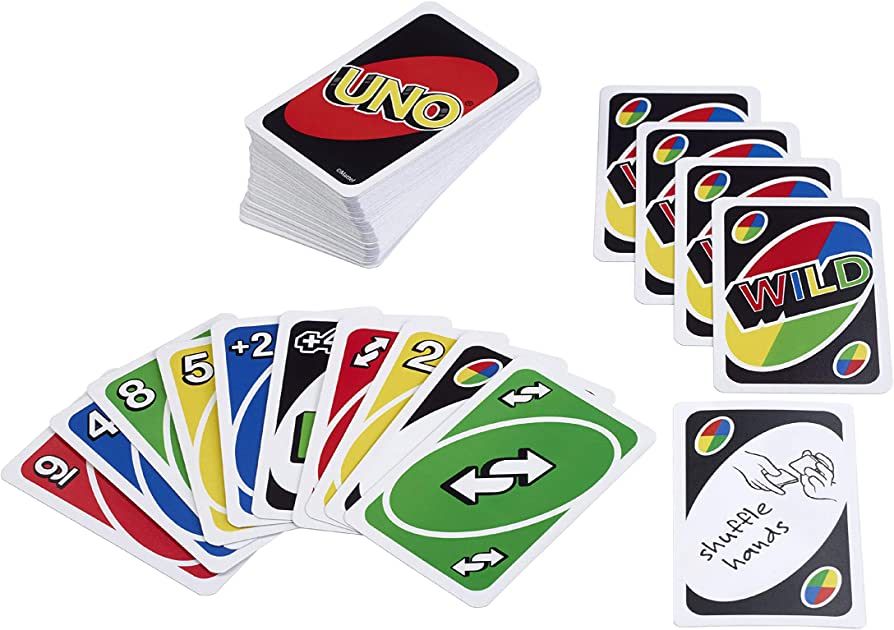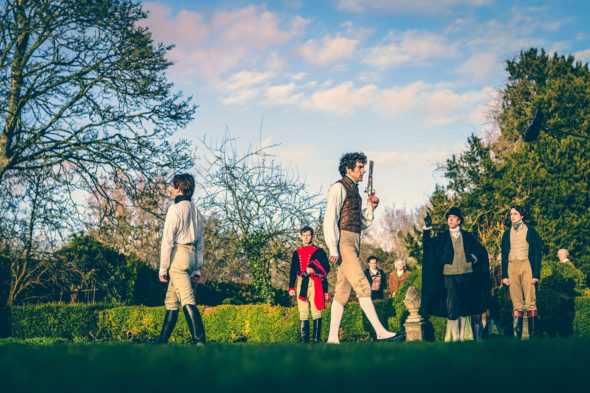As soon as she enters the screen in Shazam: Fury of the Gods, Lucy Liu’s Kalypso immediately elevates the film’s camp factor. As signaled by the armored miniskirt costume she wears throughout the entirety of the film, Kalypso is designed via excess, theatricality, and attention to appearance — many of the qualities that define the queer aesthetics of camp. Portrayed by gay favorite Liu, Kalypso is an instant addition to the canon of campy diva supervillains alongside Michelle Pfeiffer’s Catwoman and Uma Thurman’s Poison Ivy.
Kalypso’s campiness is baked into the character’s foundation. Though paired with Hespera (Helen Mirren) as the film’s primary antagonist, Kalypso is depicted as Hespera’s needy younger sister. The two enter the film when they steal the Wizard’s (Djimon Hounsou) broken staff from a museum in Greece. As Kalypso moves her hand forward to grab it, Hespera stops her so she can grab it first. From this moment on, it is clear that Kalypso is sequestered under Hespera’s shadow. The camp aspect of this dynamic is two-fold. Number one, the fact that an ancient, all-powerful Greek god’s motivation is about the same as your average attention-starved younger sibling is perfectly ludicrous. Number two, because this needy character is played by such a groundbreaking, versatile, and recognizable actress as Liu, the character’s mere appearance on screen yields over-the-top delights.
What Makes Kalypso Campy?
Liu’s contribution to Kalypso’s campiness is not isolated to her casting, though. Throughout the film, Liu delivers a series of appropriately cartoonish lines with such stone-cold severity that her performance radiates the theatricality of camp. Some of these lines of dialogue are already set up for comedic delivery, such as when she asks a captured Freddy Freeman (Jack Dylan Grazer) if Gatorade is a weapon. The even better line readings, though, are the ones where Liu’s severe delivery yields fierce results that wouldn’t land the same with a different actress. When Freddy pleads for Kalypso not to injure his teacher, Mr. Geckle (Diedrich Bader), she responds, “I won’t lay a hand on him,” before inflicting her chaos powers on him through her voice. Liu’s delivery infuses the line with Big Mean Girls Energy, turning Kalypso into a full-on petty diva.
Most significantly, especially in a superhero film, is just how camp Kalypso’s powers are. Kalypso has the powers of chaos, which allow her to hypnotize humans with whispered spells. Kalypso’s powers are first seen in the museum sequence, in which Kalypso warps the minds of the museum goers, seemingly for pleasure more than out of necessity. The film depicts her powers through Kalypso leaning into the ears of her victims and spellcasting in a hushed voice. However, the spell does not just stop there. Once warped, the hypnotized humans rush to a nearby person and perform the same whispered spell. The use of this power reads like Kalypso whispering secrets into her victims’ ears, and then the hypnotized people spread her secrets around like the hottest new gossip. What’s a campier power than hypnotic tea-spilling?
Kalypso’s Perfect Appearance
Kalypso’s dishing of the chaos dirt is not her only camp power, though. For almost the entirety of the film, no matter the level of action on screen, Kalypso’s hair and makeup remain, like Liu herself, absolutely flawless. It would be easy to chalk this up to standard Hollywood beauty practices. However, in a fight scene with the Shazamily, Kalypso is sent flying through the air and into a nearby building. When she emerges from the rubble, her face is dirtied and beaten up. But, as she runway-walks away from the debris, her visage is cleared up and returns to perfection. This quick moment reveals that Kalypso actually has the ability to heal herself and maintain her perfect appearance. There is nothing that highlights the aesthetic interests of camp quite like the power to control one’s own esthetics.
As the film approaches its climax, Kalypso plants a golden apple in Citizens Bank Park, which sprouts the Tree of Life. Riding on the back of her pet dragon, Ladon, Kalypso’s Tree gives birth to dozens of mythological monsters that terrorize Philadelphia. If her character, powers, and Liu’s performance weren’t enough to solidify Kalypso as a camp icon, then her reign as the mother of monsters certainly does the trick. After all, what’s campier right now than being Mother?
























































![Key Metrics for Social Media Marketing [Infographic] Key Metrics for Social Media Marketing [Infographic]](https://www.socialmediatoday.com/imgproxy/nP1lliSbrTbUmhFV6RdAz9qJZFvsstq3IG6orLUMMls/g:ce/rs:fit:770:435/bG9jYWw6Ly8vZGl2ZWltYWdlL3NvY2lhbF9tZWRpYV9yb2lfaW5vZ3JhcGhpYzIucG5n.webp)


